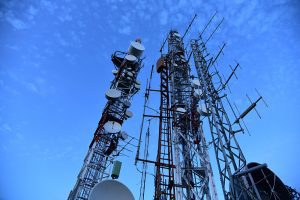 You would be hard pressed to name a topic currently creating more debate in the world of global ICT than 5G. The only thing experts seem to be able to agree on is that it’s coming. Beyond that, the questions of how quickly it will arrive, the size of the impact it will make, the rate of adoption, and which industries will be most profoundly impacted are all matters of opinion at this point.
You would be hard pressed to name a topic currently creating more debate in the world of global ICT than 5G. The only thing experts seem to be able to agree on is that it’s coming. Beyond that, the questions of how quickly it will arrive, the size of the impact it will make, the rate of adoption, and which industries will be most profoundly impacted are all matters of opinion at this point.
With that in mind, we decided to pore over some of the recent publications on 5G in order to take stock of the current climate and find out what experts are saying about this emerging technology.
China, South Korea, and the U.S. are all pushing to be first to deploy the technology, but a recent report from CTIA indicates that China is currently leading that race. According to CTIA president and CEO Meredith Attwell Baker, the U.S. can still regain pole position if policymakers take the right steps in the coming months.
In South Korea, operators plan to share the cost of deployment of 5G infrastructure in the country. The initiative could reportedly generate savings of nearly 1 trillion won ($938 million) over the next ten next years.
 In the U.S., the big four cellular carriers are switching their focus to 5G strategies and the FCC has announced that a spectrum auction will be held on November 14. TeleGeography provided an extensive overview of the current wireless marketand the preparations for 5G in the U.S. and Canada.
In the U.S., the big four cellular carriers are switching their focus to 5G strategies and the FCC has announced that a spectrum auction will be held on November 14. TeleGeography provided an extensive overview of the current wireless marketand the preparations for 5G in the U.S. and Canada.
From a regulatory perspective, many are wondering how many new rules need to be put in place in order to be truly ready for 5G. At this point, the FCC has taken an “open the floodgates” approach, opting for less regulations in order to help hasten the rollout of 5G in the U.S.
With the world’s major carriers all gearing up for this new technology, Forbes also weighed in on what a “global battle of the titans” over 5G might look like. Could the race to 5G actually be akin to an arms race? T-Mobile CEO John Legere thinks so, blaming competitors for instigating the race in a recent earnings call.
While there is seemingly no end to the enthusiasm surrounding 5G for both enterprises and consumers, Huawei’s Eric Xu warns that this optimism may be overblown and that the technology is merely a continuation of those that have come before. He says that “follow the leader” behavior by telcos and consumers will not equate to a sea change in operations.
Gary Kim echoed a similar sentiment on the Spectrum Futures blog, stating that rather than a massive and sudden switch from 4G to 5G, we’re more likely to see a gradual transition where, initially, 5G will serve as a complement 4G, not displace it.
Also among the skeptics is consultant and author William Webb, who asks whether 5G is truly a necessary evolution in technology and examines the key drivers behind it.
 Still, other observers believe that 5G could be the last standard we ever need to support every industrial and commercial process, now and into the future.
Still, other observers believe that 5G could be the last standard we ever need to support every industrial and commercial process, now and into the future.
When it comes to technologies that will enable 5G, millimeter wave and the speed associated with it is creating a lot of excitement. RCR Wireless also recently published an extensive roadmap to 5G that outlines the journey that operators are likely to take over the next year or so.
What’s your personal take on 5G? Will your organization make special use of 5G or will it simply serve as a replacement for your current 4G services? Share this piece with your colleagues or visit PTC on Twitter to let us know what you think will be key in the emergence of 5G for consumers and enterprises.




